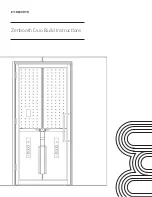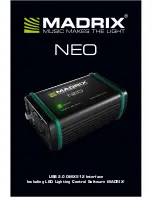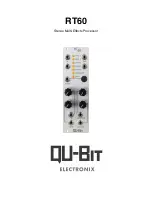
2-4
2.3
RS-232-C Interface Connection
When connecting this instrument to a personal computer, first it is necessary to match settings such
as handshake format, data transmission speed, and data format at the computer’s side. For details
relating to these settings, refer to the description on this and following pages. Furthermore, make
sure to use an interface cable which matches this instrument’s specifications.
Connector and Signal Names
2
3
4
5
7
20
Numeric values in the above figure indicate Pin Nos.
2.TXD (Send Data)
: Data transmitted to the host computer.
Signal direction : Output.
3.RXD (Received Data)
: Data received from the host computer.
Signal direction : Input.
4.RTS (Request to Send)
: Handshake signal used for reception of data from the host computer.
Signal direction : Output.
5.CTS (Clear to Send)
: Handshake signal used for transmission of data to the host
computer.
Signal direction : Input.
7.GND (Signal Ground)
: Signal ground connection.
20.DTR (Equipment Ready)
: Handshake signal used for reception of data from the host
computer.
Signal direction : Output.
Pin Nos. 1, 6 and 8 to 19 are not used.
Signal direction
RTS [Transmission request reception OK]
TXD [Transmission data]
RXD [Reception data]
CTS [Transmission enable Ready]
DTR [Transmission request reception OK]
Host Computer
DR series
3
2
5
4
20
Summary of Contents for DR130 SERIES
Page 39: ...4 9 Command Format 4 4 5 Input Range Parameter This page intentionally left blank ...
Page 40: ...4 10 4 5 Input Range Parameter This page intentionally left blank ...
Page 56: ...5 15 Commands 5 This page intentionally left blank 5 5 Other Settings ...
Page 71: ...6 9 Output Format 6 This page intentionally left blank ...
















































